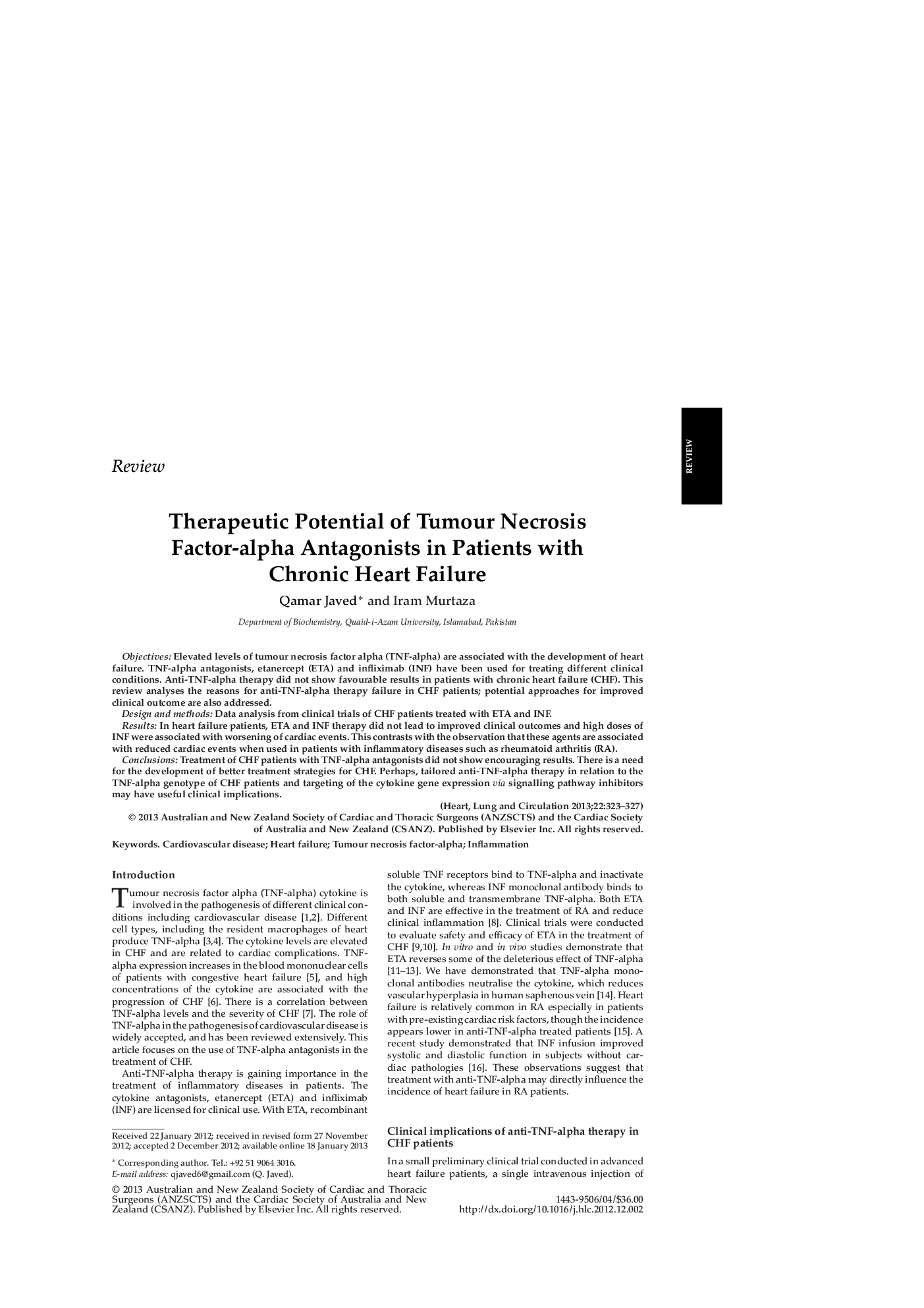| Article ID | Journal | Published Year | Pages | File Type |
|---|---|---|---|---|
| 2919030 | Heart, Lung and Circulation | 2013 | 5 Pages |
ObjectivesElevated levels of tumour necrosis factor alpha (TNF-alpha) are associated with the development of heart failure. TNF-alpha antagonists, etanercept (ETA) and infliximab (INF) have been used for treating different clinical conditions. Anti-TNF-alpha therapy did not show favourable results in patients with chronic heart failure (CHF). This review analyses the reasons for anti-TNF-alpha therapy failure in CHF patients; potential approaches for improved clinical outcome are also addressed.Design and methodsData analysis from clinical trials of CHF patients treated with ETA and INF.ResultsIn heart failure patients, ETA and INF therapy did not lead to improved clinical outcomes and high doses of INF were associated with worsening of cardiac events. This contrasts with the observation that these agents are associated with reduced cardiac events when used in patients with inflammatory diseases such as rheumatoid arthritis (RA).ConclusionsTreatment of CHF patients with TNF-alpha antagonists did not show encouraging results. There is a need for the development of better treatment strategies for CHF. Perhaps, tailored anti-TNF-alpha therapy in relation to the TNF-alpha genotype of CHF patients and targeting of the cytokine gene expression via signalling pathway inhibitors may have useful clinical implications.
